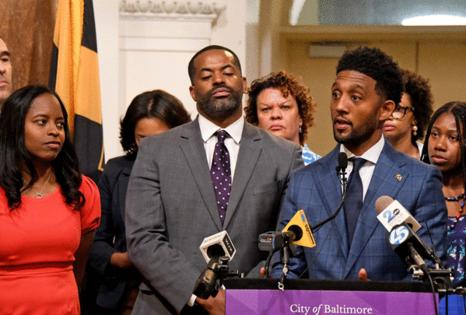Drugmaker appeals Baltimore's $152 million judgment in opioid suit
Published in News & Features
A $152.3 million judgment accepted by Baltimore City in an opioid lawsuit against pharmaceutical companies McKesson and Cencora could be overturned after McKesson filed an appeal.
The appeal was filed on Oct. 1, according to court documents.
The judgment, which the city accepted in August, has not been finalized and the money has not been disbursed to the city.
In a statement, a representative with McKesson said the drugmaker was pleased with Baltimore Circuit Court Judge Lawrence P. Fletcher-Hill reducing the current award to $152.3 million from the $266 million that a jury decided in December.
Baltimore originally sued McKesson and Cencora, previously known as AmerisourceBergen, for $5 billion. The city accused the drug makers of contributing to opioid addiction and deaths in Baltimore by distributing 320 million oxycodone pills to Baltimore between 2006 and 2019.
Jurors found the two companies responsible for 97% of the crisis, however in June, Fletcher-Hill said the Baltimore panel had awarded the city too much money in a “shocking” judgment.
Fletcher-Hill determined that the companies were responsible for a portion of the opioid epidemic, but argued that Baltimore could not prove they were responsible for the past 15 years.
“We appreciate the court’s previous ruling that the jury’s verdict was contrary to the evidence and grossly excessive,” a McKesson spokesperson said in a statement to The Baltimore Sun. “In light of that ruling, we disagree with the court’s decision to approve even part of the City’s abatement plan. The remedies put forth in the plan bear no relation to McKesson’s alleged conduct or business practices. We intend to appeal this decision.”
If the appeal is accepted by Fletcher-Hill, the trial could be restarted from scratch, the current judgment could be altered or the judgment could be reversed. If the appeal is rejected, the judgment will move forward as previously determined.
The city has already claimed the $152.3 million as a part of the Opioid Restitution Fund, even though the judgment is not final and the money has not been received. If the award is reversed, the fund will be reduced to $427 million in total funds.
“By the City’s evidence, all of defendants’ unreasonable conduct was based on a failure to recognize and act on problematic conduct at a pharmacy,” Fletcher-Hill said in his statement where he reduced the initial reward. “Every single pill sold unreasonably by a defendant was also sold unreasonably by a pharmacy. It is fair to say that every one of those pharmacies was at least as culpable as defendants.”
Mayor Brandon Scott said the $152.3 million judgment was not what the city wanted, but commended Baltimore for receiving a successful jury verdict regardless.
“This award still dwarfs the original amount the City would have received, had we not brought this separate litigation on behalf of our city,” he said in a statement from August when the judgment was announced. “While no amount of money can ever undo that harm, this award will help us expand our recovery programs, prevent future overdose deaths, and finally break the cycle of substance abuse in Baltimore.”
The Mayor’s Office did not respond to repeated requests for comment on the appeal.
The lawsuit with McKesson and Cencora is the only lawsuit Baltimore has entered against a drug company to reach a judgment rather than settling before going to trial. Other settlements, like the $45 million settlement from Allergan and the $152.5 million settlement from Cardinal Health.
________
©2025 The Baltimore Sun. Visit at baltimoresun.com. Distributed by Tribune Content Agency, LLC.







Comments